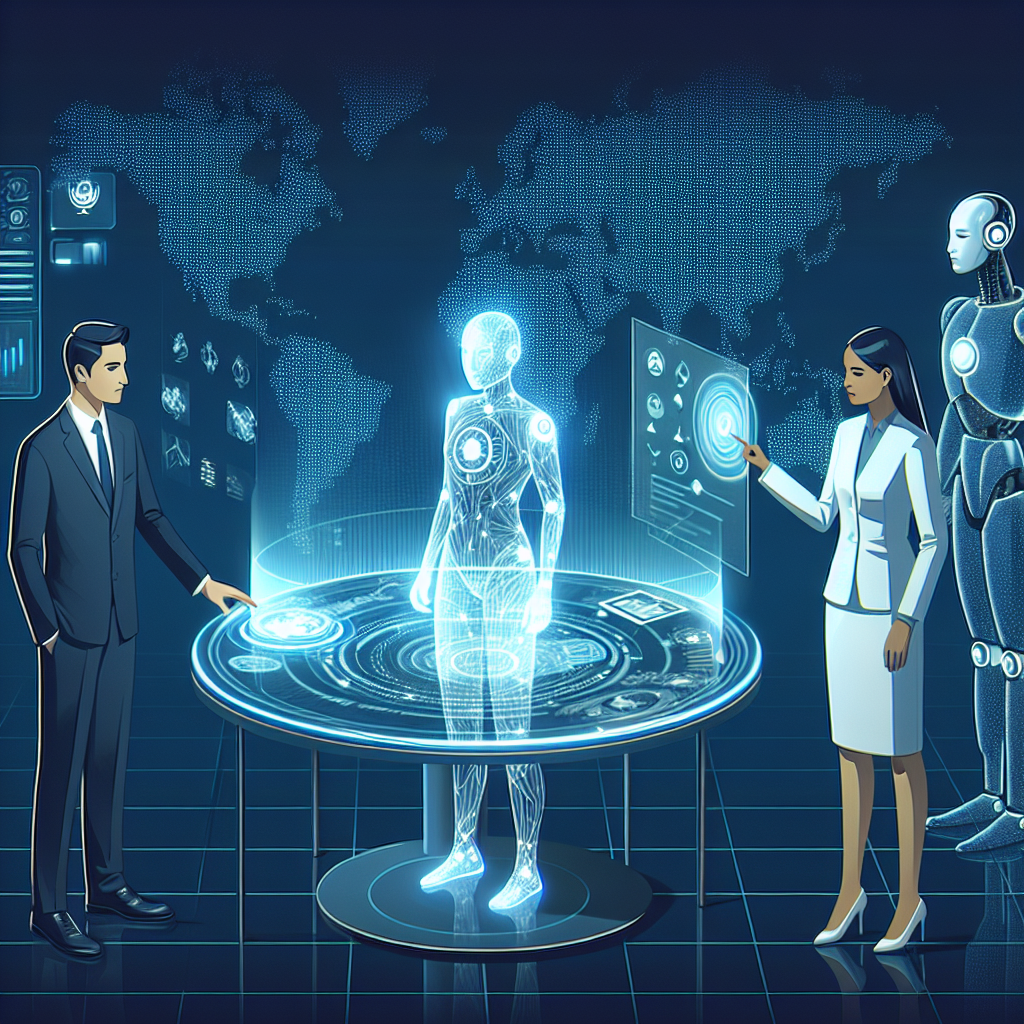The Future of AI in Diplomacy and International Relations
Artificial Intelligence (AI) is increasingly becoming a key player in the realm of diplomacy and international relations. From analyzing vast amounts of data to predicting geopolitical events, AI has the potential to revolutionize the way countries interact with each other on the global stage. As technology continues to advance, it is crucial for policymakers and diplomats to understand the implications of AI on diplomacy and international relations.
AI in Diplomacy
In the field of diplomacy, AI has the potential to assist diplomats in a variety of ways. One of the key areas where AI can make a significant impact is in data analysis. Diplomats are often overwhelmed with vast amounts of information from various sources, including news reports, social media, and intelligence reports. AI can help diplomats sift through this data more efficiently, identifying trends and patterns that may not be immediately apparent to human analysts.
AI can also assist diplomats in predicting potential conflicts or crises. By analyzing historical data and current events, AI algorithms can identify potential flashpoints and help diplomats take preemptive action to prevent escalation. This predictive capability can be particularly valuable in regions of the world that are prone to conflict or instability.
Another area where AI can be particularly useful in diplomacy is in language translation. Diplomats often need to communicate with counterparts from other countries who speak different languages. AI-powered translation tools can help bridge the language barrier, enabling diplomats to communicate more effectively and efficiently.
AI in International Relations
In the realm of international relations, AI can play a significant role in shaping the global landscape. One of the key ways in which AI can impact international relations is through its ability to analyze and predict economic trends. By analyzing vast amounts of economic data, AI algorithms can identify emerging trends and help countries make informed decisions about trade and investment.
AI can also be used to analyze social media and online discourse, providing insights into public opinion and sentiment in different countries. This information can be valuable for policymakers as they seek to understand the views and attitudes of foreign populations.
In addition, AI can be used to analyze military capabilities and predict potential security threats. By analyzing data on military deployments, weapons systems, and other factors, AI algorithms can help countries assess the military capabilities of their adversaries and make informed decisions about defense policy.
FAQs
1. How is AI currently being used in diplomacy and international relations?
AI is currently being used in a variety of ways in diplomacy and international relations. For example, AI-powered data analysis tools are being used to help diplomats sift through vast amounts of information and identify trends and patterns. AI is also being used to predict potential conflicts or crises and assist diplomats in making informed decisions.
2. What are the potential benefits of using AI in diplomacy and international relations?
There are several potential benefits of using AI in diplomacy and international relations. AI can help diplomats analyze data more efficiently, predict conflicts or crises, and bridge the language barrier through translation tools. AI can also help countries make informed decisions about trade, investment, and defense policy.
3. What are the potential risks of using AI in diplomacy and international relations?
There are also potential risks associated with using AI in diplomacy and international relations. For example, there are concerns about the accuracy and reliability of AI algorithms, as well as the potential for bias in data analysis. There are also concerns about the impact of AI on jobs in the diplomatic and international relations fields.
4. How can policymakers and diplomats prepare for the future of AI in diplomacy and international relations?
Policymakers and diplomats can prepare for the future of AI in diplomacy and international relations by staying informed about the latest developments in AI technology and its applications. They can also invest in training and education programs to ensure that they have the skills and knowledge needed to effectively utilize AI tools in their work.
In conclusion, the future of AI in diplomacy and international relations is full of possibilities. From data analysis to predictive capabilities, AI has the potential to revolutionize the way countries interact with each other on the global stage. By understanding the implications of AI and preparing for its impact, policymakers and diplomats can harness the power of AI to create a more stable and prosperous world.

